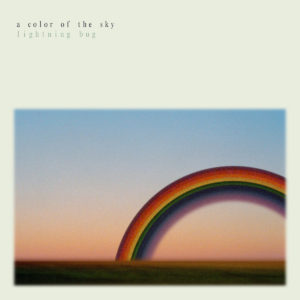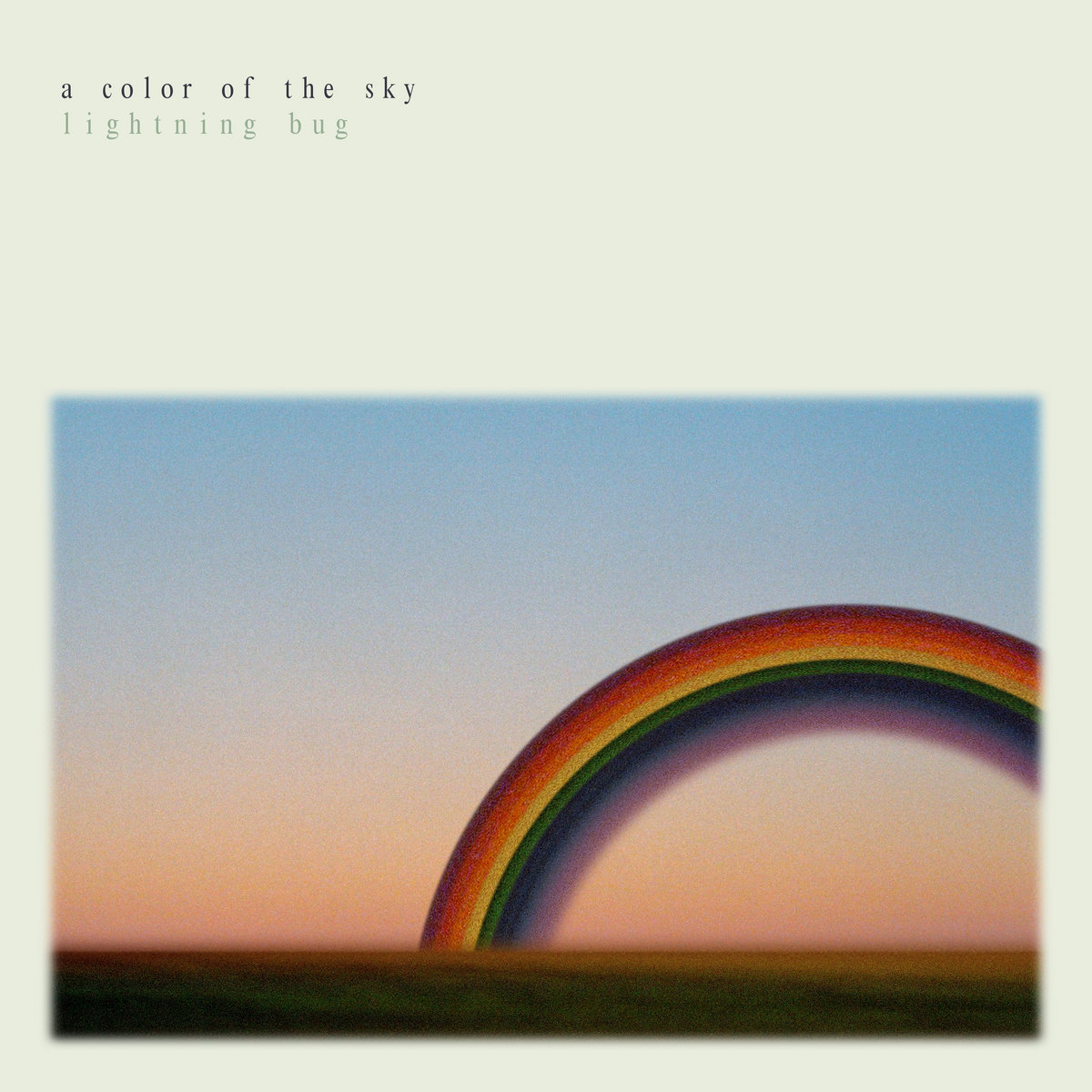 Lightning Bug
Lightning Bug
A Color of the Sky
FAT POSSUM
8/10
There’s a lot of music that tries to capture nature, to harness its tangled branches, thick brush, and expansive landscape into something resembling a four-minute pop song. We know the kind of music that gets this tag—autumnal, lush, intricate, ethereal. While Lightning Bug’s A Color of the Sky might appear to be yet another stab at this milieu—with it’s undeniable beauty, rainbow-streaked cover, and abundance of delicate restraint—what it actually captures is something far closer to the kind of natural moments we routinely experience. Yes, there’s folk-revival signifiers of hushed vocals and weighty acoustic strumming, but the edges are almost always encroaching, poised to drive a wrench into all that pastoral beauty. The songs on Sky are nature as we actually know it; a swaying field of tall grass outlined by a telephone wire, lapping waves reflecting the neon glow of a beachside 7-Eleven, the circular whir of a nearby highway audible from your tent as you attempt to get away from it all.
“September Song, Pt. II” starts simply enough—finger picking, gentle strumming, and subtle strings laying down a warm blanket onto which singer-songwriter and multi-instrumentalist Audrey Kang can stretch her limbs—but it doesn’t take long to notice something bubbling underneath. Kang may sing of vaulted skies, sunsets, and flowers, but she’s soon overtaken, the hum of the background becoming the foreground. There’s something unsettling about it all, a song unmoored from the ground into which it was so securely rooted. It’s not the only time the music seems to almost spin itself out of control, transitioning from something familiar and understated to something all-encompassing, equal parts thrilling and unnerving.
But as much as the music asserts itself within this record, Kang is undoubtedly the one setting the pace. As often as the outside world seems to impinge on the oasis Lightning Bug creates, it’s Kang herself who seems determined to get in the way, questioning and doubling back, each answer leading to a dozen more questions. “I think I’ll learn to live my life as wisely as a monk / Turn off my phone and live alone in everlasting peace,” she sings on “The Return,” a nearly seven-minute opus of an opener. This proclamation is all well and good, but what if that emotionally celibate life, in turn, means ignoring her songwriting gift—where does she turn to then?
These types of questions are a common refrain, an echo that seems to fill Kang’s quieter moments with just a hint of dread. “And as I try to hold the meaning in my hand, it runs like water through the spaces that expand,” goes the achingly spare “Wings of Desire.” “If I empty me of all my self, am I a vessel or a shell?” she asks later on in “Song of the Bell.” Allowing yourself to dissolve into nature, becoming one, losing oneself—it all sounds so easy, so, for lack of a better word, natural, but Kang is too self-aware to truly disappear and so continues to search for the best of both worlds. A Color of the Sky, similarly, is a record which finds beauty in the in-between; quiet and noise, the natural and the otherworldly, change and acceptance, it’s all there, building to something very nearly transcendent.







